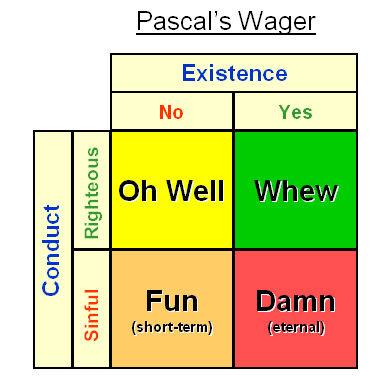I'll leave you with a little rant on that favorite topic of mine: intellectual honesty. A simple goal of this class was to get us all to recognize what counts as good evidence and what counts as bad evidence for a claim. I think we did get better at that. But this doesn't guarantee that we'll care about the difference once we figure it out.
Getting us to care was the real goal of this class. We should care about good evidence. We should care about evidence and arguments because they get us closer to the truth. When we judge an argument to be overall good, THE POWER OF LOGIC COMPELS US to believe the conclusion. If we are presented with decent evidence for some claim, but still stubbornly disagree with this claim, we are just being irrational. Worse, we're effectively saying that the truth doesn't matter to us.
Instead, we should be open-minded. We should be willing to challenge ourselves, and let new evidence change our current beliefs. We should be open to the possibility that we've currently gotten something wrong. This is how comedian Todd Glass puts it:
Here are the first two paragraphs of a great article I read last year on this:
Ironically, having extreme confidence in oneself is often a sign of ignorance. In many cases, such stubborn certainty is unwarranted.
Last week, I jokingly asked a health club acquaintance whether he would change his mind about his choice for president if presented with sufficient facts that contradicted his present beliefs. He responded with utter confidence. "Absolutely not," he said. "No new facts will change my mind because I know that these facts are correct."
I was floored. In his brief rebuttal, he blindly demonstrated overconfidence in his own ideas and the inability to consider how new facts might alter a presently cherished opinion. Worse, he seemed unaware of how irrational his response might appear to others. It's clear, I thought, that carefully constructed arguments and presentation of irrefutable evidence will not change this man's mind.
If any of this sounds cool to you, consider joining the "Owning Our Ignorance" club I run. (We even have a Facebook group!)
 So we didn't wind up studying this in class, but in case you're interested here are some links on
So we didn't wind up studying this in class, but in case you're interested here are some links on 


 There is
There is 
